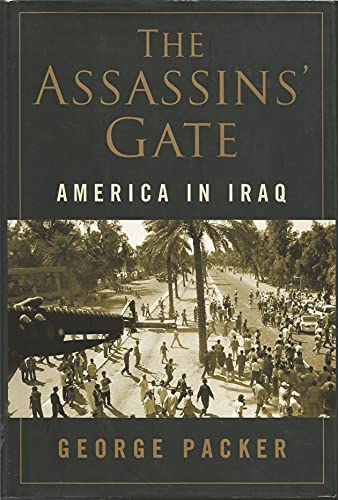The Assassin's Gate: America in Iraq recounts how the United States set about changing the history of the Middle East and became ensnared in a guerrilla war in Iraq. It tells the story of the people and ideas that created the Bush administration's war policy and led America to the Assassin's Gate--the main point of entry into the American zone in Baghdad. The consequences of that policy are shown in the author's vivid reporting on the ground in Iraq, where he made several tours on assignment for The New Yorker. We see up close the struggles of individual American soldiers and civilians and Iraqis from all backgrounds, including returning exiles, thrown together by a war that followed none of the preconceived scripts.
The Assassin's Gate also describes the effect of the Iraq war on American life, including the ordeal of a fallen soldier's family and the shortcomings of a political culture too impoverished in its knowledge of the world and too bitterly polarized to debate complex moral and strategic questions. George Packer's intimate first-person narrative navigates this journey through the landscapes of America and Iraq while tracing the author's own evolving views, bringing to the page the full range of ideas and emotions stirred up by our most controversial foreign-policy venture since Vietnam.
George Packer is a staff writer for The New Yorker and the author of several books, most recently Blood of the Liberals (FSG, 2000), winner of the 2001 Robert F. Kennedy Award. He is also the editor of the anthology The Fight Is for Democracy. He lives in Brooklyn.
George Packer is a staff writer for The New Yorker and the author of several books, most recentlyBlood of the Liberals (FSG, 2000), winner of the 2001 Robert F. Kennedy Award. He is also the editor of the anthologyThe Fight Is for Democracy. He lives in Brooklyn.
George Packer is a staff writer for The New Yorker.
